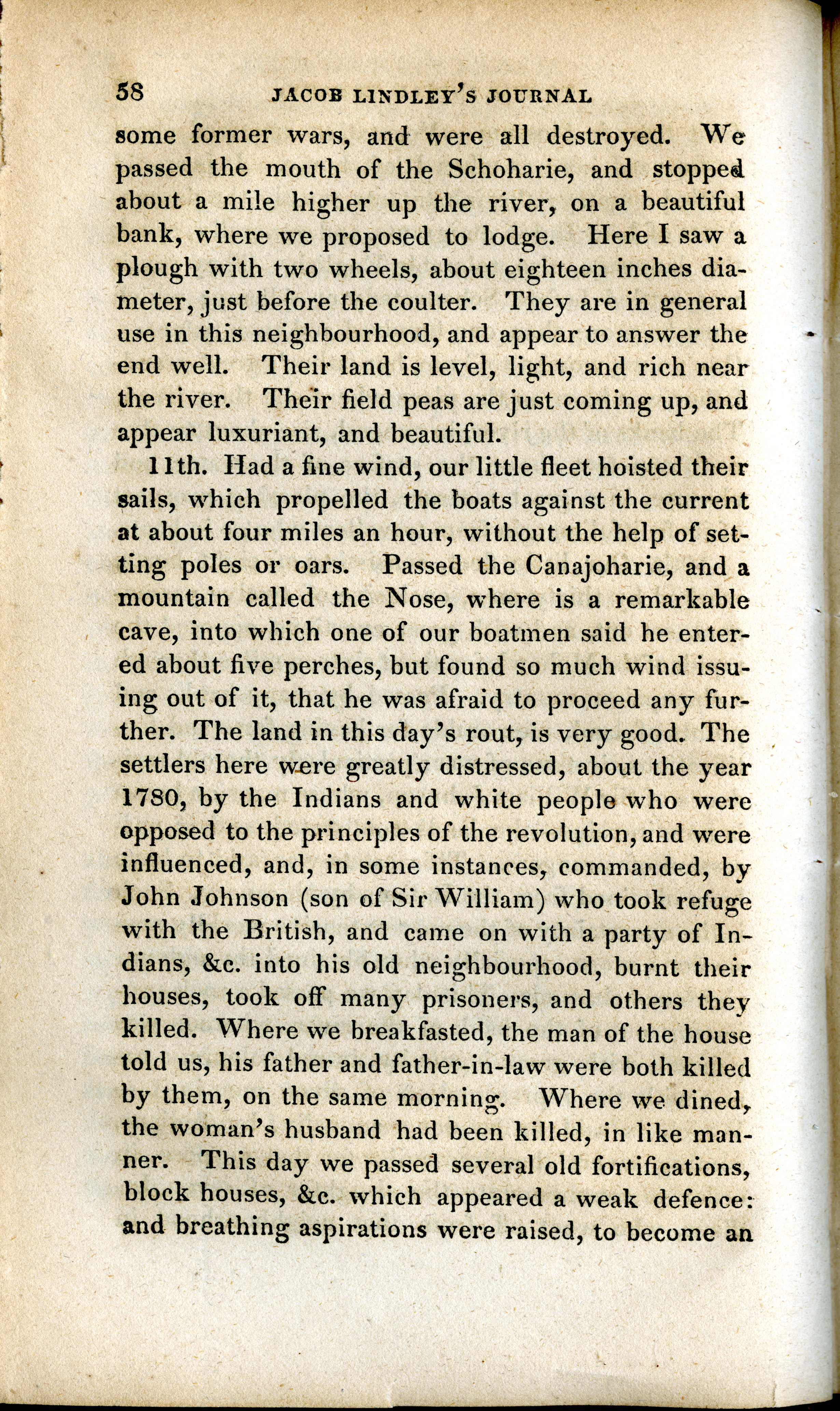some former wars, and were all destroyed.
We
passed the mouth of the Schoharie, and
stopped
about a mile higher up the river, on a beautiful
bank, where
we proposed to lodge. Here I saw a
plough with two wheels, about eighteen
inches dia-
meter, just before the coulter. They are in general
use in
this neighbourhood, and appear to answer the
end well. Their land is level,
light and rich near
the river. Their field peas are just coming up,
and
appear luxuriant, and beautiful.
Had a fine wind, our little fleet hoisted
their
sails, which propelled the boats against the current
at about
four miles an hour, without the help of set-
ting poles or oars. Passed the
Canajoharie, and a
mountain called
the Nose, where is a remarkable
cave, into
which one of our boatmen said he enter-
ed about five perches, but found so
much wind issu-
ing out of it, that he was afraid to proceed any
fur-
ther. The land in this day's rout, is very good. The
settlers here
were greatly distressed, about the year
1780, by the Indians and white people who were
opposed to the principles of the revolution, and were
influenced, and, in
some instances, commanded, by
John Johnson (son of Sir William) who took refuge
with the British, and
came on with a party of In-
dians, &c. into his old neighbourhood, burnt
their
houses, took off many prisoners, and others they
killed. Where
we breakfasted, the man of the house
told us, his father and father-in-law
were both killed
by them, on the same morning. Where we dined,
the
woman's husband had been killed, in like man-
ner. This day we passed
several old fortifications,
block houses, &c. which appeared a weak
defence:
and breathing aspirations were raised, to become an

